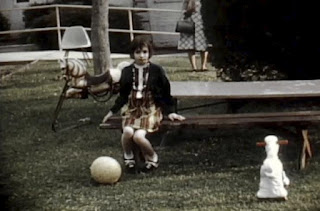Greek Mythology : The Myth of Persephone and Hades
When Demeter, the goddess of the harvest, gave birth to her first child, Persephone, she looked into her baby’s face and realized she would grow up to be beautiful.
This was a problem. As a beautiful woman herself, Demeter knew from experience that beauty brought trouble. And so, holding the crying Persephone against her chest, Demeter vowed to protect her daughter at all costs.
Years went by, and, just as Demeter had feared, Persephone grew up to be a lovely young woman. This made Demeter even more determined to keep her daughter safe. She would bring Persephone with her everywhere she went, whether she was producing a fruitful harvest to a group of villagers, or making plants flourish across the countryside.
But as Persephone grew older, the girl became curious about the world beyond her mother’s watchful gaze.
“Why don’t you let me go out on my own?” she asked Demeter one afternoon, after a long day of watching her mother bring pomegranate trees to bloom. “I’m old enough to do things by myself.”
But Demeter disagreed.
“Darling,” she said chidingly, plucking a pomegranate from the tree and handing it to her daughter. “The world is a dangerous place. You’re so much safer here with me.”
Persephone was doubtful, but took the pomegranate from her mother and munched on the seeds. Pomegranates were, after all, her favorite fruit.
But as they headed home that afternoon, they didn’t notice that someone was watching them from the shadows of the mountains.
It was Hades, the God of the Underworld, on a rare trip up into the world of the living. He had been traveling through the shadows when he looked up and froze in his tracks. Out in the dimming sunshine was the most beautiful girl he had ever seen. But while the girl’s face shone with vitality, her head was lowered, obediently trailing after a woman Hades immediately recognized as Demeter.
Hades watched the pair from his safe place in the shadows, feeling his heart sink in his chest. He realized that the beautiful girl had to be Demeter’s daughter, Persephone, meaning there was no way he would be able to meet her. Demeter had grown a reputation among the gods as being highly protective of her daughter.
But as the days went by, Hades couldn’t stop thinking about Persephone. He found himself going up into the world of the living again and again, seeking out the beautiful girl, fascinated by her zest for life, her laughter, the flowers that grew in her hair.
Finally, Hades couldn’t wait any longer. He went up to Olympus to find Zeus, the King of the Gods, and asked him for his permission to marry Persephone.
Zeus was doubtful. While he thought it would be a good match, he knew Demeter would not be happy with the idea of her daughter leaving her. But, ultimately, he agreed.
That was all Hades needed. He got on his chariot and went searching for Persephone, and when he finally found her, he couldn’t believe his luck. Persephone had finally convinced her mother to let her go off on her own, and she was relaxing in a field with only a few attendants present.
Seeing his chance, Hades swooped in on his chariot, grabbed Persephone, and pulled her down into the Underworld. It all took place so quickly, none of the attendants saw what happened.
Persephone was horrified. One minute, she was picking flowers in the sunshine. The next, she was in the arms of a strange man, being brought down into an unfamiliar place that was dark and cold.
When the chariot finally arrived at Hades’s palace, Persephone pulled away from him.
“Who are you?” she cried. “Why did you take me here?”
Hades tried to explain to Persephone that he was in love with her and wanted to marry her, but Persephone wasn’t having it. She ran away from him, looking desperately for a way out of this strange world that was full of darkness and the dead.
While this was happening, Demeter learned from Persephone’s tearful attendants that their mistress had gone missing. She immediately went into a panic, scouring the surface of the earth in search of her daughter. Because Demeter was so filled with grief and worry, she neglected her duties as the goddess of the harvest, and plants all around the world began to wither and die.
Back in the Underworld, Hades had been trying desperately to win Persephone over. He showered her with gifts: wreaths of dead flowers, gems that were frigid to the touch. But Persephone spent most of her time sitting alone in his palace garden, silently wiping the tears from her eyes.
Finally, Hades had an idea. He knew Persephone was intelligent, and capable of more than being the meek daughter of Demeter. And so, he offered Persephone a throne of her own to rule beside him as an equal over the Underworld.
At first, Persephone was hesitant. She had barely been allowed to make decisions over her own life when she was living with Demeter. But as the months went by, Persephone realized she enjoyed her new responsibilities. She even created Elysium, the place where the best of mortals could go after death.
But above in the world of the living, things were still going terribly. Humans, without the help of Demeter, were beginning to starve without their crops. Even when Helios, the Sun God, confessed to Demeter that he had seen Hades take Persephone, she refused to allow plants to bloom until she was reunited with her daughter.
Zeus saw all of this, and immediately sought out Hermes, the messenger of the Gods. He told him to fetch Persephone and bring her to his palace on Olympus.
Hermes went down into the Underworld and found Persephone soon enough, standing alone in the palace garden beside a pomegranate tree. He told her Zeus had given him orders to take her away, and Persephone reluctantly got on his chariot to soar out of the Underworld and up to Olympus.
When they finally arrived, Persephone saw her mother waiting for her in the palace hall, and the two embraced with cries of delight. But as Demeter hugged her daughter, she looked down and saw Persephone was holding a pomegranate. Immediately, she stiffened.
“What’s wrong?” Persephone said with a laugh, drawing back to regard her mother.
But Demeter couldn’t speak. The pomegranate in her daughter’s hand was missing several seeds. And as she looked back up into her daughter’s face, she heard Hades come up from behind them.
“She can’t leave,” Hades said calmly. “She’s eaten from my palace garden.”
This was true. Once one ate anything from the Underworld, they were forced to stay there forever.
Demeter felt her face flush with anger. Immediately, she accused Hades of tricking her daughter, even as Persephone tried to convince Demeter that she was in love with Hades, and was happy living as the Queen of the Underworld.
Suddenly, Zeus entered the room. He listened to Demeter and Hades argue, and then silenced them so he could hear Persephone’s side of the story.
In the end, Zeus made a decision for all of them.
Persephone, because she had eaten three seeds from the pomegranate, would stay in the Underworld for three months out of the year. For the other nine months, she would live with her mother.
While everyone accepted the deal as only fair, Demeter wasn’t as pleased with the agreement as Persephone and Hades.
Therefore, during the three months when Persephone is away from her mother, ruling alongside Hades as the Queen of the Underworld, Demeter allows the plants on Earth to weaken and die. That’s why we have winters.
But when the snow melts and the flowers bloom, know that it’s because Persephone and Demeter are, once again, together.


Comments
Post a Comment